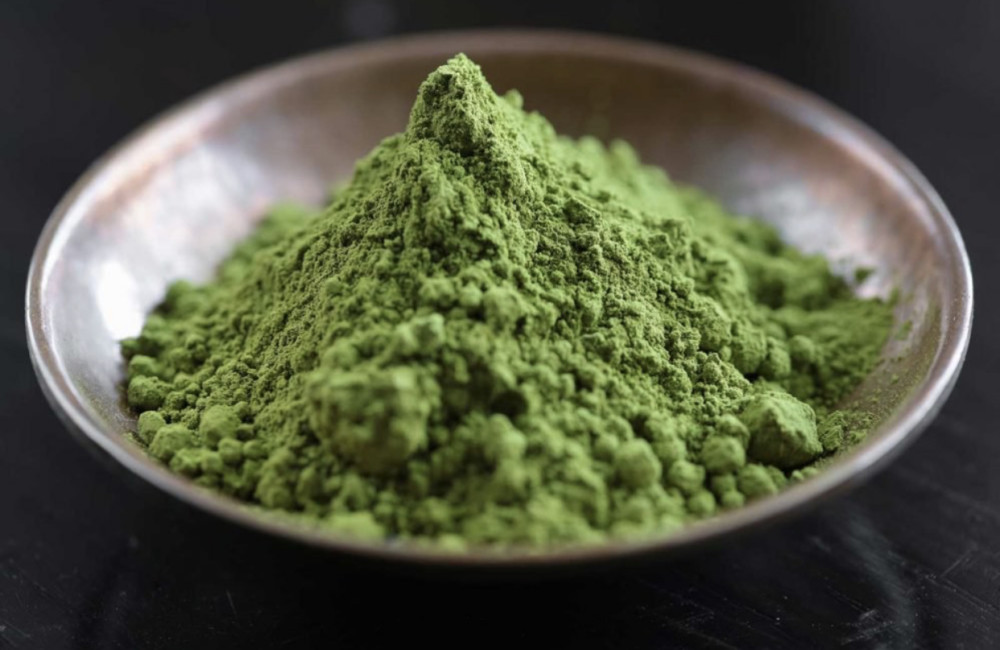By Lisa Gutierrez
The Kansas City Star
WWR Article Summary (tl;dr) The medical profession has already sounded an alarm about pregnant women using an herb called kratom.
The Kansas City Star
A baby born with withdrawal symptoms to a woman reportedly using kratom has prompted warnings for pregnant women taking the controversial herbal supplement, which is banned in some states.
A report published Wednesday in the journal Pediatrics says the baby’s father reported that the mother was drinking kratom tea every day to self-treat insomnia and withdrawal symptoms from her decade-long use of opioids, CNN reported.
The study’s lead author is alarmed that this suggests a trend among pregnant women using kratom as an alternative to heroin, oxycodone and other opioid painkillers.
“I think mothers are becoming increasingly aware of the dangers of using prescription and non-prescription opioids during pregnancy,” Whitney Eldridge, a neonatologist at Morton Plant Hospital and St. Joseph Women’s Hospital in Florida, told WebMD.
“As opioid use among pregnant women has increased, I fear they may see kratom as a potentially safe, legal, non-opioid alternative aid for opioid withdrawal, as its opioid-like properties are not well-advertised.”
Kratom warning for pregnant women
The medical profession has already sounded an alarm about pregnant women using kratom.
“Kratom is an emerging self-treatment for opioid use disorder in the obstetric population,” according to a study published in the Obstetrics & Gynecology journal in October.
“Obstetric care providers should be aware of kratom and consider opioid replacement for pregnant women with kratom dependence.”
Kratom comes from the leaves of a tropical evergreen plant in the coffee family that, according to the FDA, grows naturally in Thailand, Malaysia, Indonesia and Papua New Guinea.
American fans grow their own plants from seeds, which can be purchased along with the actual plant and extracts online or in shops, according to the men’s publication MEL magazine.
According to MEL, kratom is usually brewed like a tea or crushed into a powder and mixed with water, and is usually taken in capsule form or in tea.
Kratom bans are possible
It’s legal, as far as federal authorities are concerned, but kratom is banned in five states — Alabama, Arkansas, Indiana, Wisconsin and Vermont, according to The Huffington Post.
The DEA has considered designating kratom a Schedule 1 drug, which would effectively ban it, the Kansas City Star reported earlier this year.
“Acting on the same brain receptors as morphine and similar drugs, it is hailed by some as a solution to the opioid epidemic but derided by the US Food and Drug Administration as a potentially dangerous psychoactive drug,” CNN reported.
Concerns at the federal level about health risks and potential abuse of the supplement manifested in a public health advisory from the FDA last year that said the agency was aware of reports of 36 deaths associated with the use of products containing kratom.
“There’s clear data on the increasing harms associated with kratom,” the advisory said. “Calls to U.S. poison control centers regarding kratom have increased 10-fold from 2010 to 2015, with hundreds of calls made each year.”
Kratom to fight addiction
The flip side to that are testimonials from people who praise the plant’s potential in helping people fight addiction.
For a congressional hearing last month hosted by the American Kratom Association advocacy group, an addiction expert submitted a statement hailing kratom for helping her 25-year-old son addicted to opioids.
“I am actually terrified about the possibility of a kratom ban and its effects on my own son and family,” wrote Margaret Smith Chisholm, an adjunct professor at Johns Hopkins University School of Medicine. Her statement is published on the group’s website.
“After four years of languishing … my son is finally beginning to flourish. Kratom is his lifeline. Without that, he will be at high risk of illicit drug use, overdose, and death — as will thousands of others in this country.”
The case of the American baby who went through withdrawal is similar to one detailed in the Canadian Family Physician journal earlier this year.
In that case, a girl was born to a 29-year-old mother who became addicted to the oxycodone she was prescribed to treat low back pain six years earlier. She went through detox, after which the back pain came back, the study says.
She learned about kratom from a friend who pitched it to her as a way to relieve anxiety and pain, according to the study.
So the woman took it — kratom is legal in Canada — and found that it relieved her pain, boosted her mood and kept her anxiety at bay, researchers wrote.
She kept taking it during her pregnancy, right up to the delivery, the study says. Two days later, the baby was placed in neonatal intensive care with signs of withdrawal — irritability, jitters, vomiting.
The case was significant because there had been “only one mention of the effect of the substance in pregnancy in the literature, where a woman in Thailand using kratom gave birth to an infant with a withdrawal syndrome,” the Canadian study said.
“The opioid crisis is growing across Canada, resulting in devastating morbidity and mortality. It is vital that awareness be raised within the medical community concerning kratom, a legally obtainable and easily accessible drug with harmful effects and addiction potential comparable to what is seen with common opioids.”
In statement to CNN, FDA commissioner Scott Gottlieb said in addition to the baby mentioned in the new study, the agency is aware of “four other cases involving neonates exposed to kratom while in utero who experienced neonatal opioid withdrawal syndrome after term delivery.”
Andrew Kruegel, an associate research scientist at Columbia University who has studied the plant for seven years, told CNN that he’s not surprised that a baby could go through withdrawal, but he noted that nothing is known about how much kratom the mother was taking.
“Without that information, you can’t really extrapolate too much,” he told CNN.














































































































































































































































































































































































